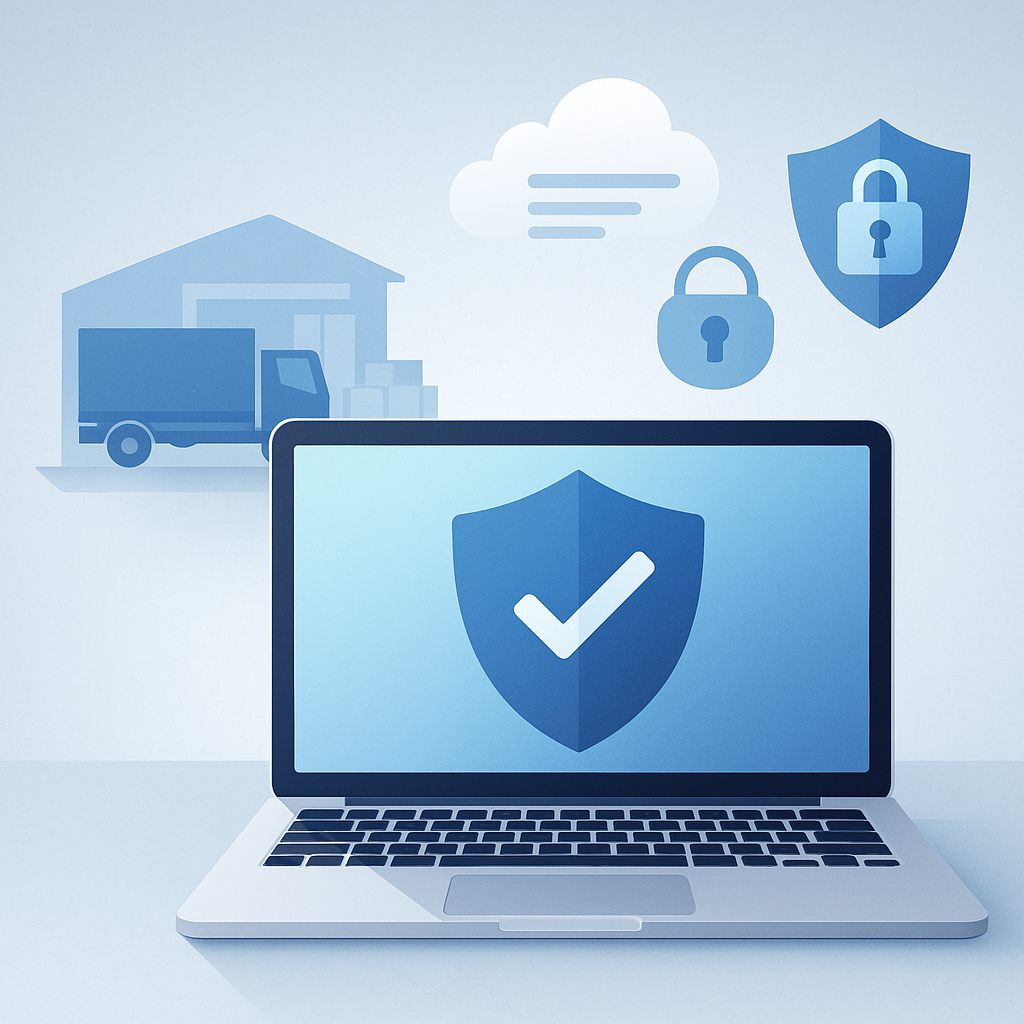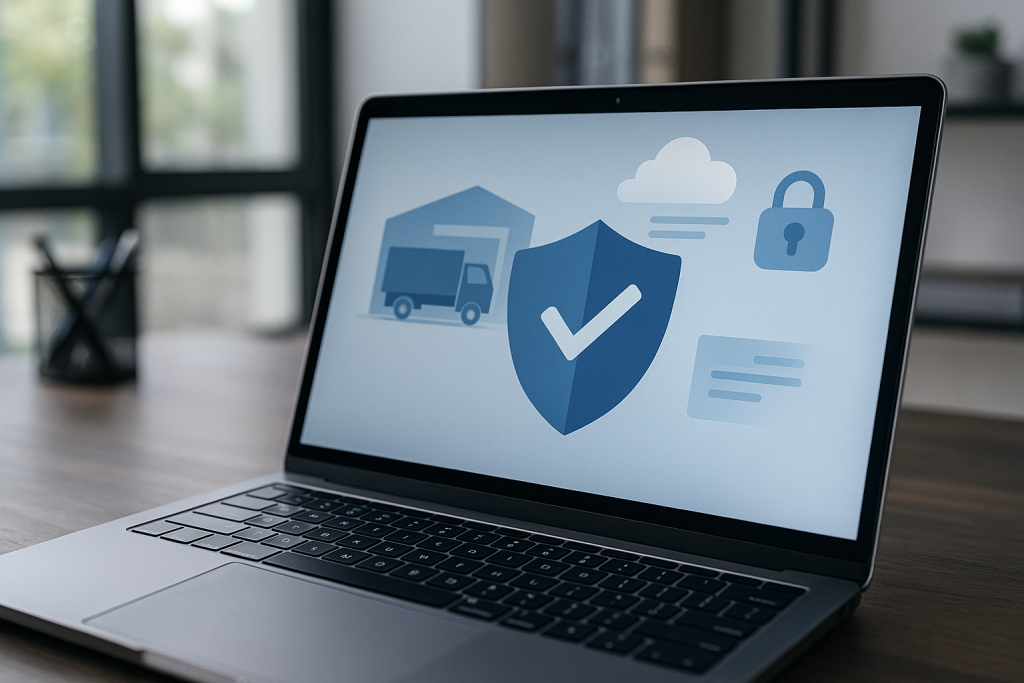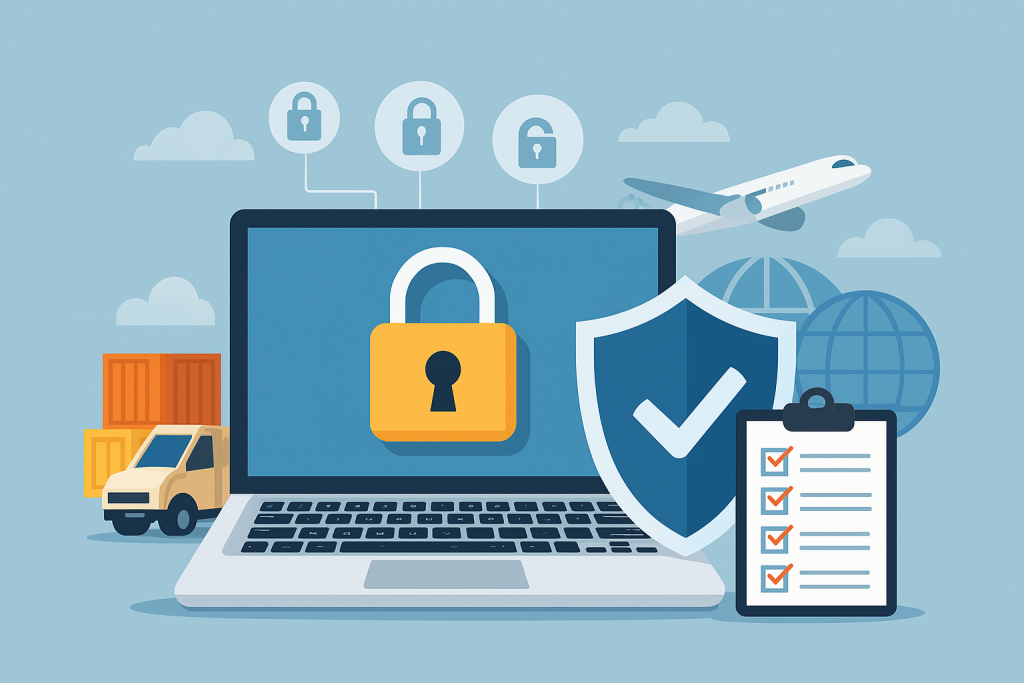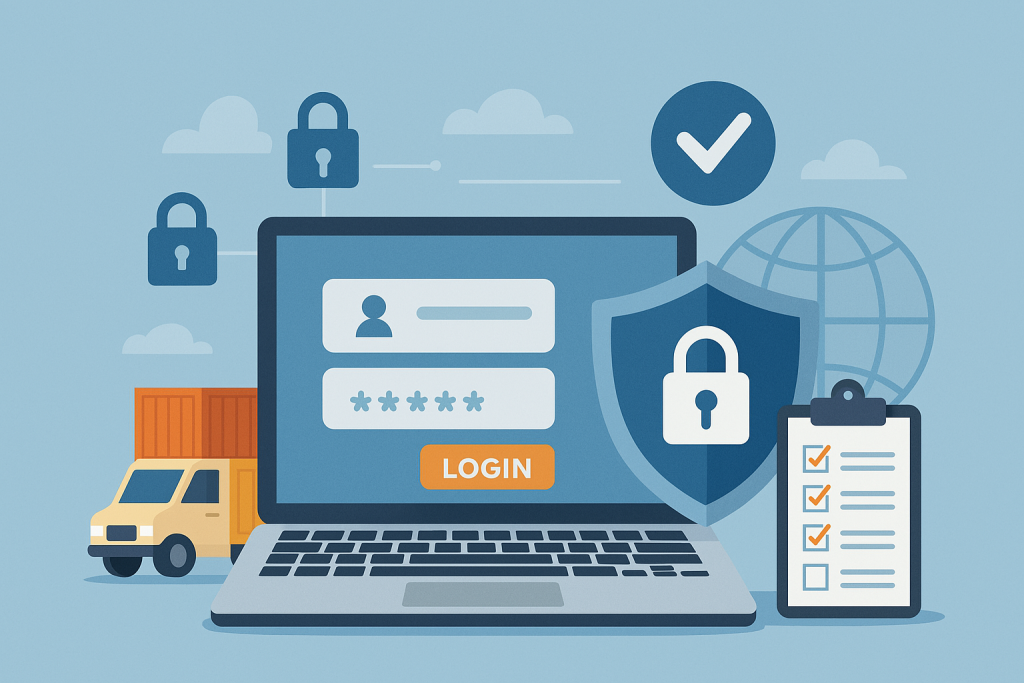Securing Your Freight Data: Logistics Software Security Best Practices

🚨 Why Freight Software Security Matters
Freight forwarders and logistics providers deal with high volumes of sensitive information:
- Client and supplier data
- Shipment records and tracking
- Customs documentation
- Invoices, contracts, and payment info
A breach in your freight software could mean delays, reputational damage, or legal penalties. Security is not just an IT issue — it’s a business-critical priority. 🔍
🔐 1. Use Cloud-Based Software with Enterprise-Grade Security
Modern cloud-based freight platforms like Linbis offer built-in security advantages:
- End-to-end encryption (both in transit and at rest)
- Geographically distributed backups
- Firewall and intrusion detection systems
- Real-time patching and updates
- Multi-factor authentication (MFA)
Cloud providers invest heavily in security infrastructure that most on-premises setups can’t match.
✅ Linbis uses advanced cloud architecture to ensure your data is always encrypted, redundant, and securely stored.

🧑💼 2. Enforce User Permissions & Role-Based Access
Not everyone in your team should access every function. The best freight software lets you:
- Set role-based access controls (RBAC)
- Assign permissions for documents, shipments, billing, etc.
- Limit API access or third-party app integrations
🔐 This reduces human error and internal misuse.
🔁 3. Conduct Regular Data Backups & Recovery Drills
Even secure systems need recovery protocols in case of unexpected events.
Your software provider should offer:
- Daily or real-time backups
- Geo-redundancy (data mirrored in multiple locations)
- Disaster recovery testing to validate response times
📦 Linbis automatically backs up your data and can restore operations quickly — helping you stay compliant and operational.
🔍 4. Monitor User Activity & System Logs
Security isn’t just about firewalls — it’s also about visibility.
Look for freight software that enables:
- Audit trails for who accessed what and when
- Alerts for unusual login attempts or data exports
- Access logs exportable for compliance
This helps detect internal threats or security gaps early.

🧩 5. Choose Software with Third-Party Compliance & Certifications
Trustworthy platforms comply with recognized standards such as:
- ISO 27001
- SOC 2 Type II
- GDPR (if working internationally)
These certifications prove that the vendor follows strict procedures for data handling, storage, and access.
🛡️ Linbis aligns with international compliance requirements, reinforcing its role as a trustworthy SaaS partner for logistics companies.
🔄 6. Ensure Secure Integrations (API Security)
Integrations are powerful — but risky if not secured. Your freight software should offer:
- Tokenized, encrypted API access
- Rate limiting and access throttling
- Authorization scopes to control data exposure
If your platform connects with accounting, CRM, or marketplace tools, verify every data point is protected.

📱 7. Educate Your Team: Human Error Is the Weakest Link
The most secure platform still needs trained users. Implement:
- Cybersecurity training for your team
- Strong password policies
- Device security rules for mobile or remote access
When everyone understands the risks, the entire system becomes more resilient.
✅ Conclusion: Protecting Freight Data Is a Competitive Advantage
Security isn’t just about defense — it’s about trust. Clients, partners, and stakeholders need to know that you take their data seriously.
By choosing a software provider like Linbis, which places security and compliance at the core of its platform, you’re not just improving logistics operations — you’re building confidence.
🔒 Want Freight Software That Puts Security First?
👉 Get a demo of Linbis today and see how you can manage freight with enterprise-grade protection, powerful features, and full transparency.
